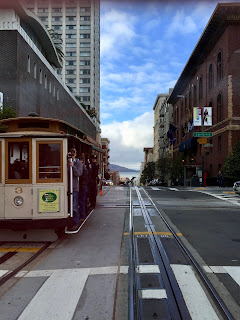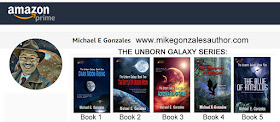Episode Five: Halifax
I was on the bus, traveling to Halifax where I’d be presenting my book to a group at Dalhousie University, and I was quite excited. Yes, I know. I should have been wary—after all, it was Angela, my publisher’s ineffectual publicity agent who had arranged the event. She had also arranged those fateful talks in Ottawa and Montreal, the ones no one had shown up for or known about. Foolishly, I do tend to be an optimist.
Outside, it had started snowing. Serious snow.
“We’re running way behind schedule,” said the bus driver.
Well, no problem. My talk wasn’t until tomorrow afternoon. Because I was in a cheery mood, I made the mistake of saying something to the young woman seated beside me—how was I to know this very round, ruddy creature was a monument to logorrhea? That I had opened a sluice gate.
She was soon giving me the details of her recent wedding, the venue, the weather, the caterers, and the meal. Each bridesmaid was described, her dress, and hairstyle. There was information about the priest, about relatives who had attended — all one hundred and twenty-five of them, since mother is one of twelve children. Then came minutiae about her own wedding dress — how she’d made an effort to diet, but those pounds simply didn’t budge, and to think she hardly eats anything because she really has a small appetite. Throughout the monologue, she steadily pushed one M&M after another between her ruby lips: the package in her lap was giant-sized.
At one point, masticating heartily, she announced: “I’m on my way to Moncton for a conference. I’m a psychologist.”
***
Running very late, we wouldn’t arrive in Halifax before two or three in the morning. At that hour, the hostel where I’d planned to stay would be closed.
“And there’s a wine festival on at the moment,” said the driver. “You won’t find a free room anywhere. It would be best if you got off at the next stop. There’s a good motel close by, and you can catch the morning bus into the city.”
Always open to good advice, I stepped off the bus and slogged through the snow. Discovered the motel was closed. Now what? I schlepped back to the station. The bus had gone, of course. No, there would be no other buses heading east that evening. The woman at the ticket counter felt sorry for me; I felt sorry for me.
“Well, there is another motel way up the road,” she said. She picked up the phone, called them. Yes, they were open, and, yes, they had a free room.
They were very nice people too, a Lebanese family who had arrived in Canada during the civil war.
“Our whole family immigrated. Well, almost the whole family: one sister can’t get a visa.”
“Why not?”
“It’s the fault of all those immigrants they’re letting into the country.”
***
At one o’clock the following afternoon, I trudged through slush and sleet, searching desperately for the building where I was supposed to give the talk. I found the street, all right, but there was no building with the number 116-42. Up and down I went, the brown sludge seeping into my boots. No passerby could help me, and, of course, there was no public telephone in sight. I didn’t have a cell phone with me—not everyone did, back then—but even if I could have reached dear Angela, I knew she’d be of no help.
Now what? The talk was supposed to have started, and here I was, with a heavy backpack filled with books, and a huge folder of photos mounted on cardboard that my publisher was certain would be useful.
Suddenly, through the sleety gloom, I spied a little knot of people stamping their feet, trying to keep warm and alive. I approached with much desperation. Did they know where number 116-42 was?
“No,” said one. “We’re looking for the same address, but we can’t find it either. Are you here for the book talk?”
“Actually…I’m the author.”
“Oh, well that’s a relief. But where should we go? The organizer hasn’t shown up.”
We stood around for a little while longer. The organizer and Angela must be in cahoots, I thought grimly. Several would-be fans, fearing death from exposure, toddled on home. Then, finally, the organizer arrived.
“Well, I did notice the address was wrong,” she said breezily. “If you want, I can try and get the key to the Women’s Center.”
Soggy, cold, and disheartened, we survivors—about ten of us—plodded over to that little house. It was up to me to cheer things up. So pulling out a few good tales, and using a lot of exaggeration, I did manage to get everyone chuckling.
“You’re obviously not an academic,” said one.
In the end, all but one person bought a book: this was success, in a modest way. A very, very modest way.
***
The woman who hadn’t bought a book did offer to drive me back into town. Why did I accept? That warm and cozy car was a lure, and I, a mere captive, received all the details about a daughter, now in Europe, who had once been a dancer. Her former studio was described, her close friends, her wedding (it had taken place three years before) her wedding dress, and how cute and beautiful her baby is. I heard about feeling problems, allergies, and potential genius. I received intimate information about colic.
Eventually, I did manage to escape, and I headed for the highly interesting Maritime Museum. In the bookshop, were many books on nineteenth-century immigration. My book would fit in nicely here, I thought, and I asked the woman running the shop if she’d be interested.
“Why not talk to the museum director?”
The director was charming. I told her about that afternoon’s book talk, the sleet, the cold, the incorrect address.
“What a shame.” She shook her head with sincere regret. “Why didn’t your publisher contact us instead? We have great success with author talks here at the museum. We’d love to have you come and present your book. Let us know when you’ll be back in this part of the world.”
“Yes, I’ll do that,” I said. But since it had taken me a whole lifetime to get to Halifax, I doubted I’d be back in the neighborhood anytime soon.
***
Back in the city center, I sat at the counter of a bar and dreamt about eating oysters (far too expensive). Two rich-looking men were sitting nearby. One was handsome and interesting-looking; the other wasn’t. The handsome guy was quiet; his chum wasn’t, and he did love boats. He told me all about boat design—okay, he did buy me a drink or two—but believe me, by the time I stumbled out the door, I knew all about mono and multihulls, design software, boat plans, fiber reinforced plastic, high-performance sailing, twin canting, T-foils, ballast, and roll stability at low speed.
I was becoming quite an authority on a great many subjects.
























